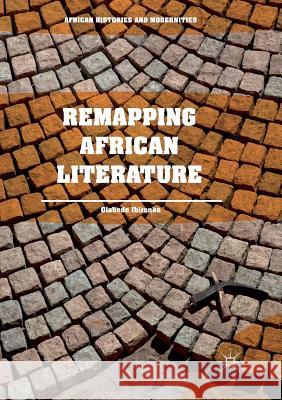Remapping African Literature » książka
topmenu
Remapping African Literature
ISBN-13: 9783030098810 / Angielski / Miękka / 2019 / 336 str.
Kategorie:
Kategorie BISAC:
Wydawca:
Palgrave MacMillan
Seria wydawnicza:
Język:
Angielski
ISBN-13:
9783030098810
Rok wydania:
2019
Wydanie:
Softcover Repri
Ilość stron:
336
Waga:
0.42 kg
Wymiary:
21.01 x 14.81 x 1.88
Oprawa:
Miękka
Wolumenów:
01
Dodatkowe informacje:
Wydanie ilustrowane











